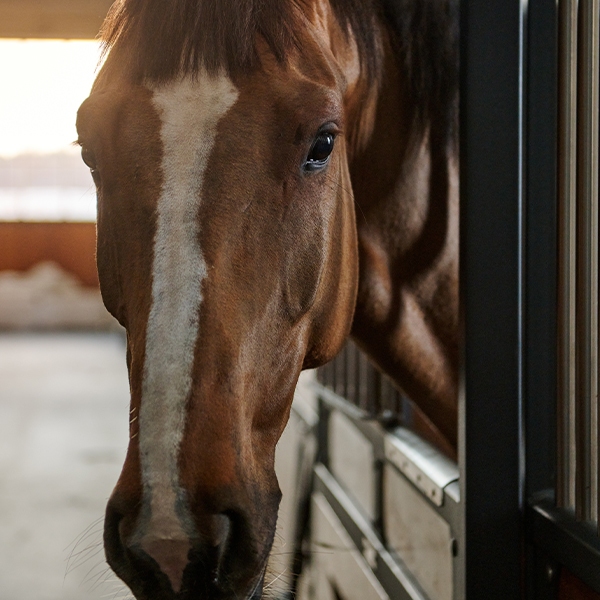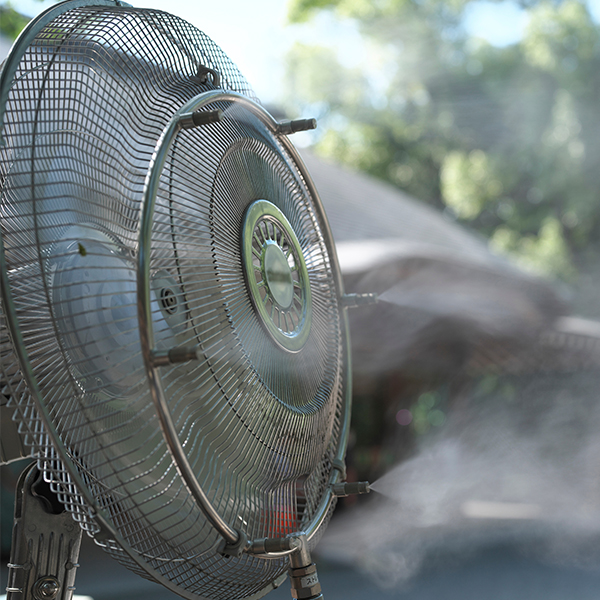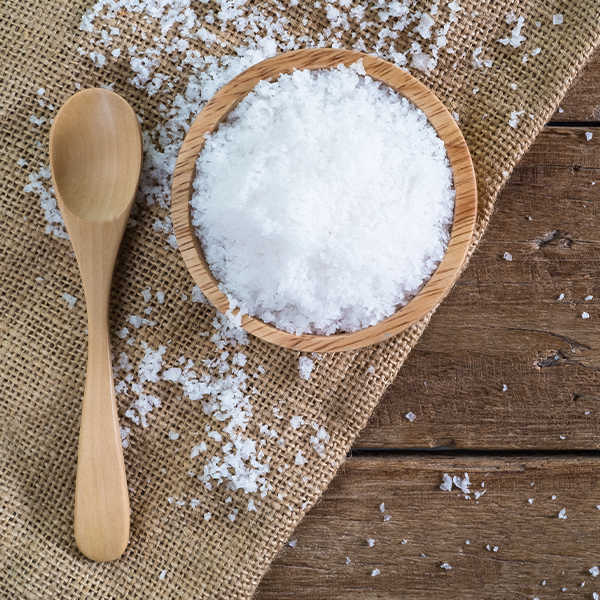In the warmth of a summer day our horses graze and romp in pastures. However, during summer there lies a significant risk that equestrians must be aware of—heat stress.
This condition, often underestimated, poses a serious threat to the wellbeing of horses who rely on us for their protection and care. A thorough understanding of its symptoms and the implementation of preventive measures are crucial for maintaining the health and well-being of our equine companions.
Identifying the Signs: Symptoms of Heat Stress
The discomfort of standing in relentless sun and humid heat can cause horses to suffer from heat stress and heat stroke. According to Dr. Cindy Weis, DVM, at Tennessee Equine Hospital West, “The normal range for equine body temperature is 99.5 F to 101.5 F. Horses experiencing heat stress may have elevated body temperature of 102 F to 106 F. A horse experiencing heat stroke often has a body temperature of 106 F and higher.
Heat stress occurs when a horse becomes overheated and fails to cool or recover in a timely manner. Heat stroke occurs when heat stress goes untreated and body temperature fails to decrease leading to excessive dehydration, seizures, and even death.” Here are main symptopms of heat stress:
- Excessive sweating or, conversely, an absence of sweat, indicating a failure in natural cooling mechanisms.
- Dehydration, evident through dry gums, elasticity of skin, and a coat that has lost its sheen.
- Increased heart and respiratory rates, which are the body’s attempts to mitigate the effects of heat.
- A rise in body temperature of 102 F to 106 F, and higher indicating heat stroke.
- Physical manifestations such as stumbling or lethargy, reflecting the severe impact of heat.
According to Kyla Szemplinski, MS, Extension Agent with the UT and TSU Shelby County Extension office, “just like in humans, heat stroke is much more serious since the body temperature reaches 106-110 F and can be fatal if left untreated.” If your horse does not respond to manual cooling aids then it is important to call your veterinarian immediately.
The quickest and most efficient ways to decrease body temperature:
1. Contact your veterinarian immediately: Your horse may need intravenous fluids and medical intervention to reduce body temperature, especially if your horse’s condition deteriorates immediately.
2. Stop ALL exercise and remove tack: If your horse displays signs of stress during a ride it is important to stop the session, remove the tack and access respiratory and heart rate as well as body temperature. The main goal is to ensure your horse returns to normal levels and is responding to your cooling aids.
3. Remove your horse from direct sunlight and get into shade: Getting your horse to a shaded area will immediately decrease the direct heat and stress the horse is experiencing.
4. Place the horse where there is a breeze or in front of a fan: A cross breeze or air flow from a fan will help cool the horse’s skin, especially if the horse is sweating.
5. Hose with cool water.: Start at the hooves, work up the legs, over the large muscle groups of the hindquarters and then the back, neck and head if the horse calmly allows. Do this for as long as takes to decrease the body temperature.
6. Offer water: Keep cool and fresh water for the horse to drink at will. It is important to ensure your horse does not become dehydrated.
If your horse is not sweating follow the above actions. “Electrolyte supplementation is important as electrolytes can be depleted or lost quickly in sweat over the summer months,” Dr. Cindy Weis, DVM, states.
Our journey with horses emphasizes the significant responsibility we hold. Addressing heat stress in horses is not merely a matter of applying preventive strategies; it is about creating a comprehensive care system that protects the whole horse.
Dr. Cindy Weis advises to “remember that, just like humans, the very young (foals), the old (senior horses) and horses experiencing other health issues such as being overweight, underweight, asthma, etc. may require special attention during the summer months to help keep them cool, hydrated, and comfortable.
Always consult your veterinarian for any specific needs for your horse.”
Aids that can help prevent Heat Stress:

critical during hot and humind days.

temperatures during extreme heat.

must haves for horses in pastures

balance of electrolytes in horses.









